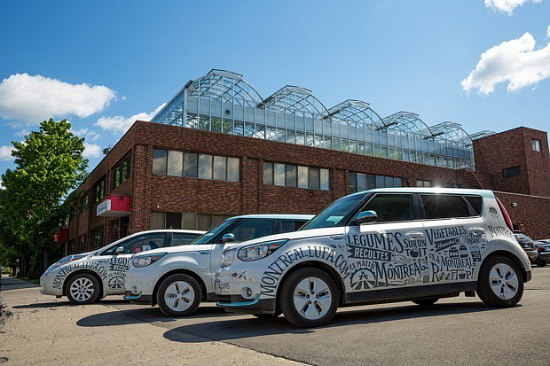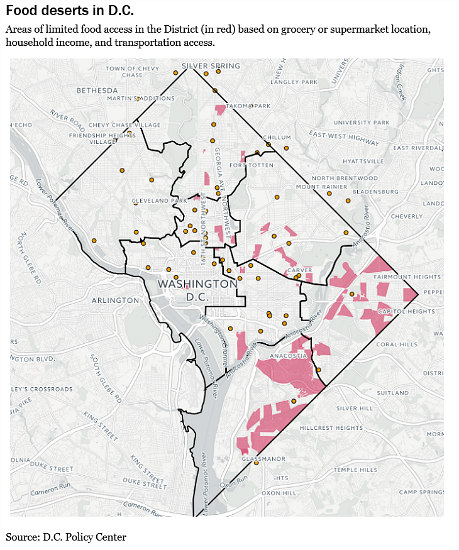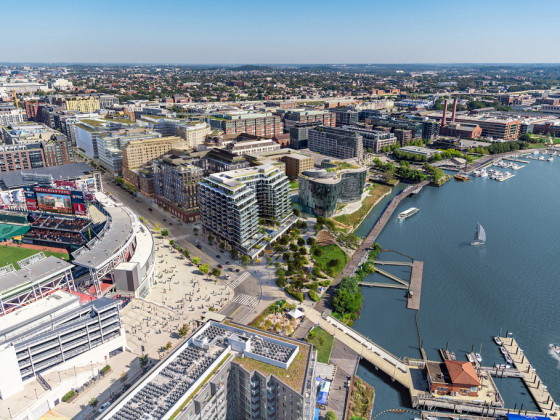What's Hot: Did January Mark The Bottom For The DC-Area Housing Market? | The Roller Coaster Development Scene In Tenleytown and AU Park
 Delivery Robots, Farmshares: DC Looks for Solutions to Serve Food Deserts
Delivery Robots, Farmshares: DC Looks for Solutions to Serve Food Deserts
✉️ Want to forward this article? Click here.

As several new grocers have announced their intent to open in the District, the conversation about food deserts seems more salient than ever.
This morning, the Office of the Deputy Mayor for Planning and Economic Development (DMPED) hosted a roundtable with the goal of addressing inequitable access to fresh and healthy food in the city.
The statistics about DC's disparate distribution of grocery stores are well-documented, with fewer full-service grocers east of the Anacostia River now than there were a decade ago. Office of Planning food policy director Laine Cidlowski pointed out that the current mayoral administration has committed $3 million to steering two developments in Wards 7 (map) and 8 (map) that would help close the grocery gap.
However, full-service grocers shouldn't bear sole responsibility for bridging this gap.
"Supermarkets...want to run a business that is successful," said Yesim Taylor, executive director of DC Policy Center. "If you believe in that kind of system, there's no market favor in not having a store in certain neighborhoods, it just means that the company is doing the right thing opening up places where the rents, the income, all of those things can support the operations."

Executive director of DC Hunger Solutions (DCHS) Dr. Beverley Wheeler agrees that there are other equally important areas of focus that can provide short-term solutions.
"I like to talk about the continuum of healthy food access. There are grocery stores, there are healthy corner stores, we can have child nutrition programs, we have farmer's markets....there doesn't have to be one set way to delivery healthy food."
In recent years, DCHS partnered with DC Central Kitchen to distribute affordable fresh produce to corner stores in lower-income neighborhoods. However, the District has a ways to go to expand shopping options for recipients of WIC (Women, Infants and Children) and SNAP (Supplemental Nutrition Assistance Program) federal nutrition benefits. Only half of the full-service grocery stores in the city accept WIC.
The on-demand delivery economy also presents an opportunity to ensure residents in food deserts have more convenient access to fresh food. Starship Technologies, which has had autonomous delivery robots roaming DC's sidewalks for over a year, is one of twenty companies seeking to decrease dependency on pollutant-heavy delivery trucks. David Catania, former councilmember and current head of public affairs for Starship, sees technology as being key to food access.
Starship does not yet have any grocery stores as retail partners, but the robots can carry up to 20 pounds, or three bags' worth, of groceries in one trip and can deliver in a 2-mile radius in a 30 to 45 minute span. Robovans, a courier "mothership" that is a product of Starship's partnership with Mercedes Benz, can also be used to deploy multiple delivery robots to a neighborhood simultaneously or to house grocery pop-ups in underserved neighborhoods. However, although more delivery robots can dramatically decrease delivery fees, WIC and SNAP benefits do not cover delivery costs.
While grocery delivery robots may be a longer-term option, community gardens have gained favor in recent years as a productive use of the urban landscape and a potential stopgap in fresh food access. A DC law signed in 2015 makes vacant lots more accessible to the community for urban agriculture initiatives, although any evidence that these provide more fresh produce to neighborhood residents is mostly anecdotal thus far.
In Montreal, urban agriculture company Lufa has created a farmshare program that offers next-day delivery to members. Perhaps more locally-driven cooperatives like Lufa can represent a future for food access in DC as well. "Grocery store developments take anywhere from 2 to 10 to 15 years, but that doesn't mean we can't do things in the short term to get healthy food access to people today," Cidlowski noted.
See other articles related to: food deserts dc
This article originally published at https://dc.urbanturf.com/articles/blog/solutions-to-serve-dcs-food-deserts/13554.
Most Popular... This Week • Last 30 Days • Ever

As mortgage rates have more than doubled from their historic lows over the last coupl... read »

The small handful of projects in the pipeline are either moving full steam ahead, get... read »

Lincoln-Westmoreland Housing is moving forward with plans to replace an aging Shaw af... read »

The longtime political strategist and pollster who has advised everyone from Presiden... read »

A report out today finds early signs that the spring could be a busy market.... read »
DC Real Estate Guides
Short guides to navigating the DC-area real estate market
We've collected all our helpful guides for buying, selling and renting in and around Washington, DC in one place. Start browsing below!
First-Timer Primers
Intro guides for first-time home buyers
Unique Spaces
Awesome and unusual real estate from across the DC Metro













